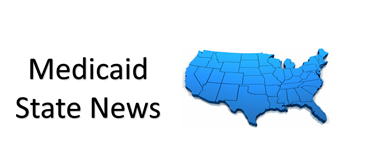MM Curator summary
As MO took some time to figure out how to pay for expansion, it may get a lot more federal funding under the Democrats new plan to sweeten the deal for expansion hold outs.
The article below has been highlighted and summarized by our research team. It is provided here for member convenience as part of our Curator service.
Republican state Sen. Dan Hegeman, of Missouri, discusses voter approval of a ballot measure he sponsored during an interview on Thursday, Nov. 5, 2020, in his state Capitol office in Jefferson City, Mo.
AP Photo/David A. Lieb
(The Center Square) – The Missouri Senate Appropriations Committee will engage in a “perfection debate” Monday afternoon on a proposed bill implementing Medicaid expansion approved by state voters when they adopted Amendment 2 in August.
According to estimates compiled by State Auditor Nicole Galloway, expanding Medicaid under the Affordable Care Act (ACA) could cost the state more than $200 million or save it as much as $1 billion annually by 2026.
But Congress could change the calculus – and potentially provide Missouri with a windfall $1.7 billion over two years in Medicaid funding attributable to timing.
While expansion was approved by 53% of voters in Missouri, it won’t be in effect at least until the start of the new fiscal year, July 1. Oklahoma voters also approved Medicaid expansion last summer that goes into effect in July.
But Missouri and Oklahoma are still among the 14 states that U.S. House Democrats are trying to induce into expanding Medicaid under the ACA.
Billions in additional federal funding for Medicaid expansion for states that have not done so is included in a $1.9 trillion COVID-19 relief package proponents say would provide health coverage to more than 2 million Americans “falling between the cracks in government programs in the midst of the pandemic and economic downturn.”
Under House Democrats’ plan, Missouri could receive up to $1.7 billion by expanding Medicaid. Texas would receive $6 billion, Florida $3.5 billion, North Carolina $2.4 billion, Georgia $1.9 billion, Tennessee $1.7 billion, Wisconsin $1.3 billion and Kansas $330 million by expanding Medicaid under the ACA.
Amendment 2 expands Medicaid for residents between the ages of 19 and 64 with an income level at or below 133 percent of the federal poverty level. Supporters say the measure will provide healthcare to more than 200,000 Missourians who earn less than $18,000 annually.
Republican Gov. Mike Parson and the Legislature’s GOP leaders vigorously opposed the measure. In his State of the State address last month, however, Parson told lawmakers he expected them to execute the will of the people in implementing the expansion.
How the potential $1.7 billion boost influences Monday’s Senate Appropriations Committee’s “perfection debate” on Senate Bill 1 is uncertain.
The bill, filed by committee chair Sen. Dan Hegeman, R-Cosby, would extend the state’s federal match program — the Federal Reimbursement Allowance (FRA) — for Medicaid payments. Nearly 85 percent of all payments to Missouri hospitals through MO HealthNet are covered by the FRA.
The state’s FRA program was established as voluntary before being enacted into law as a provider tax in 1992. Hospitals contribute to the FRA and Missouri’s Medicaid program — MO HealthNet — uses the funds to earn higher returns in federal matching dollars.
SB 1 would continue maximizing federal matching dollars through Medicaid expansion to the burden on state general revenues, Hegeman told the panel when it preliminarily advanced the measure in an 11-1 vote on Jan. 26.
Among extensions is continuing to allow the Missouri Department of Health (DOH) to collect approximately $1.28 billion in Hospital Tax in Fiscal Year 2022 and in FY23. Hospital tax revenues will, in turn, draw approximately $2.391 billion in federal funds each year to the state.
Missouri Hospital Association (MHA) Executive Director Rob Monsees told the panel that adding 200,000 people to the state’s Medicaid program will generate “a substantial amount of new FRA dollars. Some of those dollars can help provide an offset to the cost of expansion.”
Sen. Bill Eigel, R-Weldon Spring, the lone dissenter, said the FRA is growing too big and needs reform. “We have thrown money at a broken program with no meaningful reform whatsoever,” he said.






